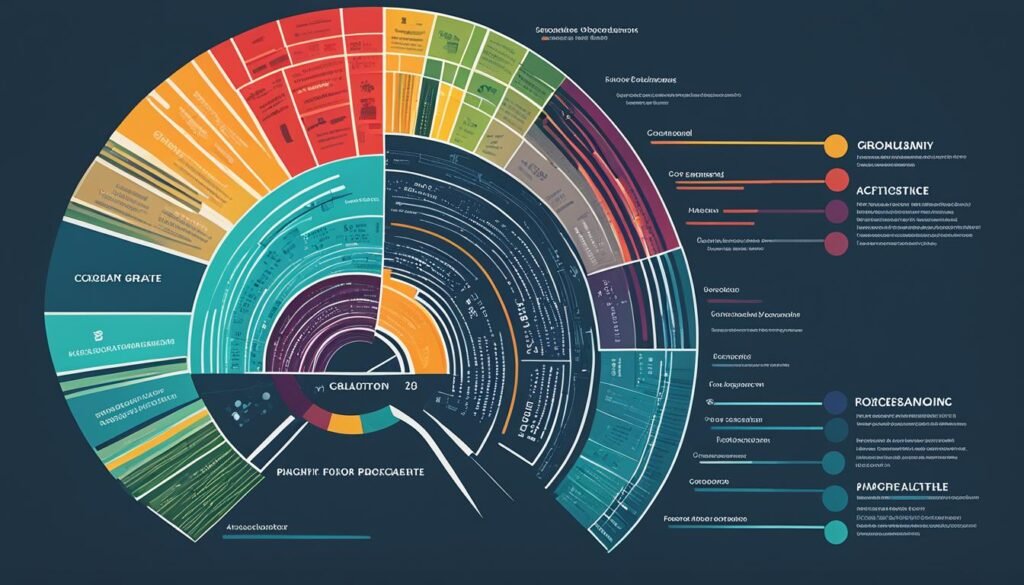Are you considering pursuing an advanced degree? Choosing the right graduate program is crucial for your academic and professional success. With so many options available, it can be overwhelming to determine the best fit for your goals and aspirations. But don’t worry, we’re here to help! In this article, we will guide you on how to select the right graduate program, whether you’re choosing a graduate school in the United Arab Emirates or anywhere else in the world. So let’s dive in and discover the key factors to consider when embarking on your journey towards advanced degrees.
Factors to Consider When Choosing a Graduate Program
When it comes to selecting a graduate program, there are several key factors that you should consider to ensure you make the right choice for your academic and career goals.
- Curriculum and Courses: Start by assessing the program’s curriculum and courses. Look for programs that align closely with your interests and aspirations, ensuring that you will gain the necessary knowledge and skills to succeed in your chosen field.
- University Reputation and Accreditation: The reputation and accreditation of the university offering the program are important indicators of quality and recognition. Check whether the program is accredited by relevant professional bodies or associations to ensure that it meets industry standards.
- Faculty Expertise and Qualifications: The faculty members play a crucial role in your learning experience. Research the qualifications and expertise of the program’s faculty to ensure that their knowledge and background align with your interests.
- Location and Campus Facilities: Take into consideration the location of the university and whether it suits your preferences and lifestyle. Additionally, consider the availability and quality of campus facilities such as libraries, research labs, and student support services.
- Cost and Financial Aid Opportunities: Evaluate the cost of the program and any available financial aid opportunities. Look into scholarships, grants, and assistantship programs that can help offset the financial burden of tuition fees.
By carefully considering these factors, you can make an informed decision about which graduate program is the right fit for you and your future success. Keep in mind that what works for someone else may not necessarily be the best choice for you. Trust your instincts and prioritize the factors that align most closely with your academic and career aspirations.
Researching Graduate Programs and Universities
Prior to making a decision, it is essential to thoroughly research various graduate programs and universities. By conducting comprehensive research, you can gather the information needed to make an informed choice that aligns with your academic and career goals.
Exploring University Websites
Start your research journey by exploring the websites of different universities. University websites provide valuable information about the programs they offer, including detailed descriptions of each program’s curriculum, specialization areas, and faculty profiles. Take note of the entry requirements, application deadlines, and any additional application materials required by the universities you are interested in.
While browsing university websites, you can also explore the campus facilities, student life, and extracurricular activities they offer. These factors can greatly contribute to your overall experience as a graduate student.
Utilizing Graduate School Rankings and Reviews
Another valuable resource in your research process is graduate school rankings and reviews. Websites like U.S. News & World Report and The Chopras Global Holdings Pte Ltd provide comprehensive rankings and reviews of graduate programs.
These rankings consider factors such as academic reputation, faculty qualifications, and research opportunities. By exploring these rankings, you can gain insights into each program’s strengths and weaknesses, allowing you to make an informed decision based on your priorities.
Additionally, reading reviews from current or former students can provide valuable firsthand perspectives on the programs you are considering.
Remember, while rankings can provide useful insights, they should not be the sole determining factor in your decision-making process. It is important to consider each program’s fit with your personal and professional goals.

Thorough research is essential in choosing the right graduate program and university. By exploring university websites and utilizing rankings and reviews, you can gather the necessary information to make an informed decision. Take this opportunity to evaluate each program’s offerings, faculty expertise, and any unique opportunities available. Remember, finding the perfect fit will set the foundation for your future success.
Applying to Graduate Programs
Now that you have narrowed down your choices and determined the graduate programs that align with your goals, it’s time to start the application process. This is a crucial step in your journey towards pursuing advanced education and expanding your career opportunities. To ensure a smooth application experience, here are some essential tips to keep in mind:
- Gather Required Documents: Begin by collecting all the necessary documents, including transcripts, letters of recommendation, and personal statements. These documents showcase your academic achievements, skills, and experiences, providing admissions committees with valuable insights into your qualifications.
- Pay Attention to Application Requirements: Each graduate program may have specific application requirements and deadlines. It is crucial to carefully review and understand these requirements to ensure that your application is complete and meets all the necessary criteria. Missing important documents or failing to meet deadlines can jeopardize your chances of admission.
- Utilize Resources for Smooth Navigation: Applying to graduate school can be overwhelming, but you don’t have to navigate the process alone. Take advantage of resources provided by TC Global, renowned for their expertise in international education. They can provide guidance on application strategies, help you understand the admissions process, and answer any questions you may have along the way.
- Seek Feedback on Your Application Materials: Before submitting your application, seek feedback from trusted mentors, professors, or colleagues. They can provide valuable insights and suggestions to help you strengthen your application materials, making them more compelling and reflective of your unique qualities and achievements.
Remember, applying to graduate school is a competitive process, and putting your best foot forward requires careful attention to detail and preparation. By following these application tips and utilizing available resources, you can increase your chances of gaining admission to the graduate program that will propel your academic and professional journey.

Making Your Final Decision
After receiving acceptance offers from different graduate programs, it’s time to make your final decision. This is a crucial step in finalizing your graduate program and taking the next step towards your academic and career goals. To ensure you make an informed decision, consider the following:
Funding Opportunities
Evaluate the funding opportunities available for each program. Look into scholarships, grants, and assistantships to determine the financial support you may receive. Consider the financial implications and weigh them against the potential benefits and opportunities offered by each program.
Research Opportunities
Assess the research opportunities provided by each program. Look into the faculty members’ areas of expertise and ongoing research projects. Consider how these align with your research interests and aspirations. Research opportunities can significantly enhance your academic experience and open doors to future opportunities.
Networking Prospects
Take into account the networking prospects offered by each program. Consider the connections and collaborations you can establish with faculty, fellow students, and alumni. Networking plays a vital role in expanding your professional network and creating opportunities for internships, jobs, and collaborations in the future.
Career Services
Investigate the career services provided by each program. Look into the resources and support available for career development, including job placement assistance, resume-building workshops, and networking events. Strong career services can greatly assist you in launching a successful career after graduation.

Attending open houses or virtual sessions can provide you with a firsthand experience of the program. This gives you the opportunity to interact with faculty members and current students, ask questions, and gain valuable insights. Trust your instincts and choose the graduate program that aligns best with your academic and career goals. Remember, this is an important decision that will shape your future, so take the time to evaluate all aspects.
By carefully weighing the above parameters and considering your personal preferences, you can confidently make your final decision, knowing that it sets you on the path towards a successful graduate school journey.
Conclusion
Selecting the right graduate program is a decision that can shape the trajectory of your academic and professional future. To make an informed choice, it is essential to carefully consider several factors throughout the process. Firstly, evaluate the program curriculum to ensure it aligns with your academic and career goals. Look for universities with strong reputations and accreditation, as this will enhance the value of your degree in the job market. Additionally, explore faculty expertise and qualifications to gauge the quality of education you will receive.
Thorough research is key to selecting the right fit. Take advantage of resources like university websites and rankings to gather information about various programs. These resources provide insights into program strengths and weaknesses, allowing you to make an informed decision. Pay attention to the application process and ensure you gather all necessary documents. Be proactive in seeking out guidance from resources like TC Global to navigate the admissions process smoothly.
Ultimately, trust your instincts and choose the program that best aligns with your academic and career aspirations. With the right approach, you can unlock your potential and achieve success in your chosen field. Remember, the graduate program you select will be a stepping stone towards your future goals, so make sure you invest time and effort in selecting the right one.


